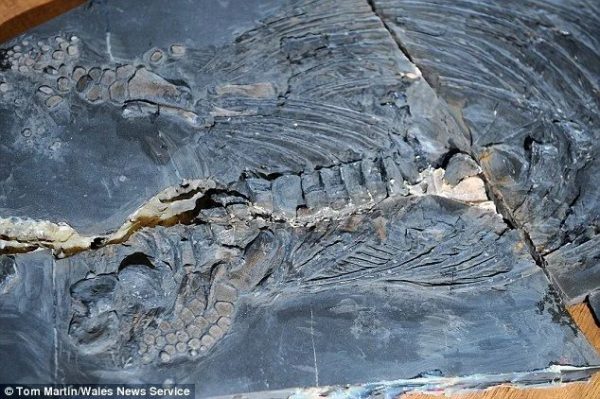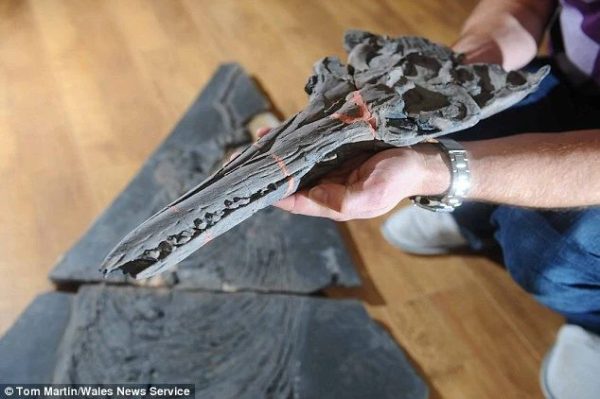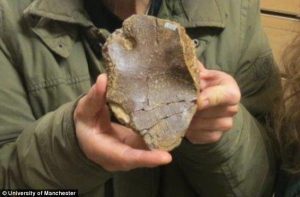A remarkable ichthyosaur fossil, believed to be approximately 200 million years old, has recently been uncovered on the shores of Penarth in South Wales.

Measuring an impressive 7 feet in length and weighing around 132 pounds, this fossil was meticulously excavated by Jonathan Bow, a beach walker who dedicated an entire day to unveil this extraordinary specimen.
The completeness of the fossil has captured the attention of paleontologist Cindy Howells from the National Museum of Wales, who deems it potentially highly significant.

Ichthyosaurs, colloquially known as fish lizards, were formidable marine reptiles characterized by their carnivorous nature.
These creatures, spanning a size range from 3 to 52 feet, thrived during the Mesozoic era, making their initial appearance approximately 250 million years ago.

The ichthyosaur population is believed to have experienced growth during the later Triassic and early Jurassic Periods, only to be gradually replaced by plesiosaurs in the later Jurassic and Cretaceous Periods. Ultimately, by the Late Cretaceous period, ichthyosaurs faced extinction.
This newfound ichthyosaur fossil in South Wales presents a unique opportunity for researchers to delve into the intricacies of these ancient marine creatures.

The fossil’s excellent state of preservation allows for a comprehensive examination, providing valuable insights into the anatomy and life of ichthyosaurs during their dominance of prehistoric oceans.
The discovery stands as a testament to the ongoing revelations that Earth’s geological history unfolds, with each fossil unearthed contributing a chapter to the fascinating narrative of ancient life.